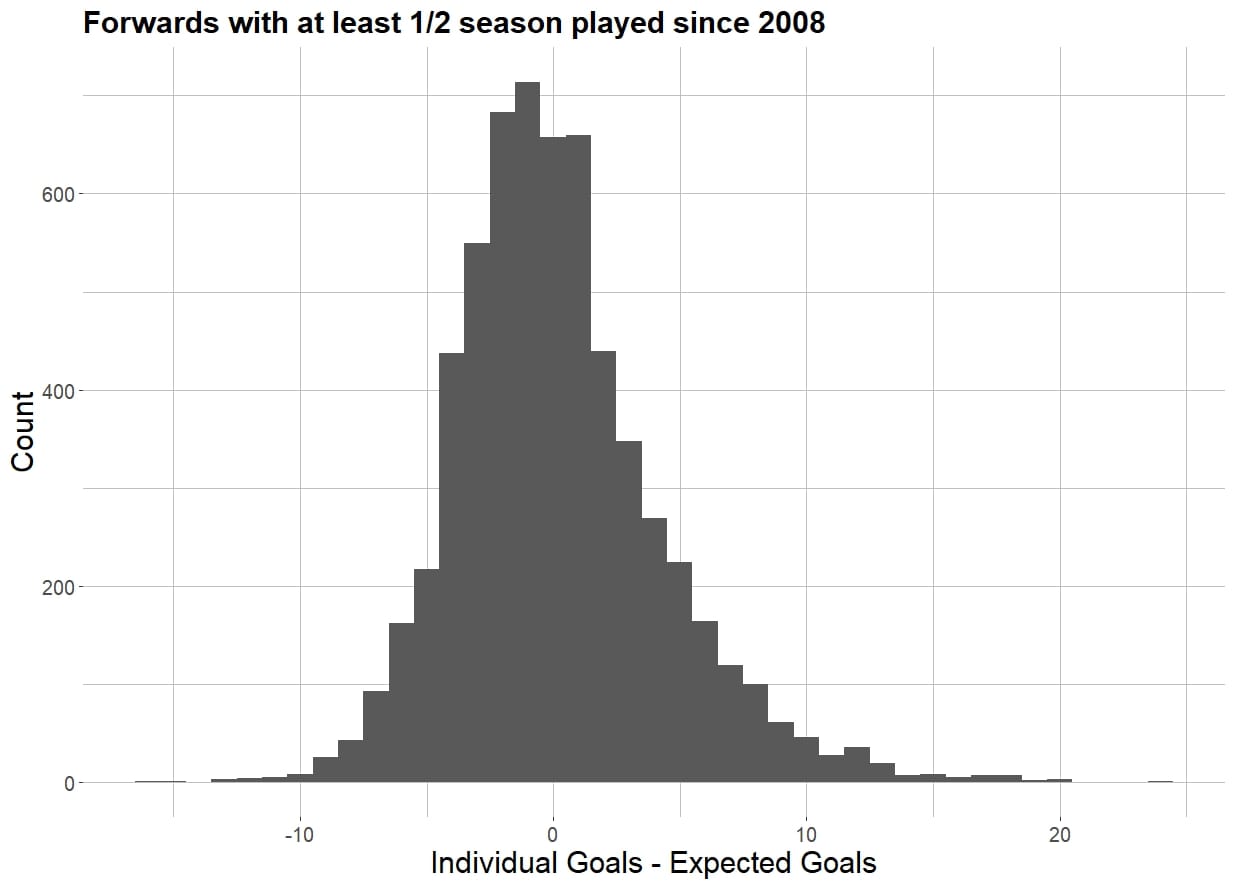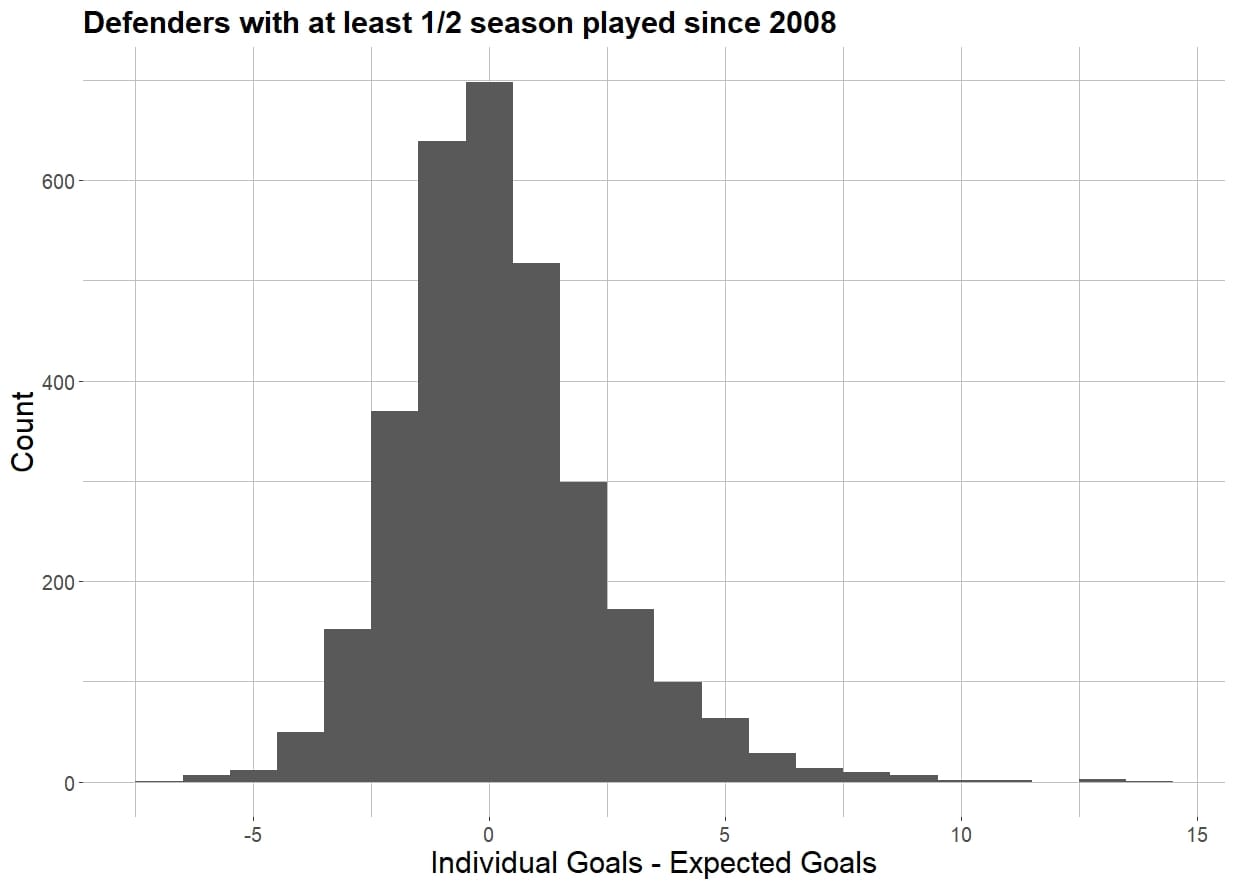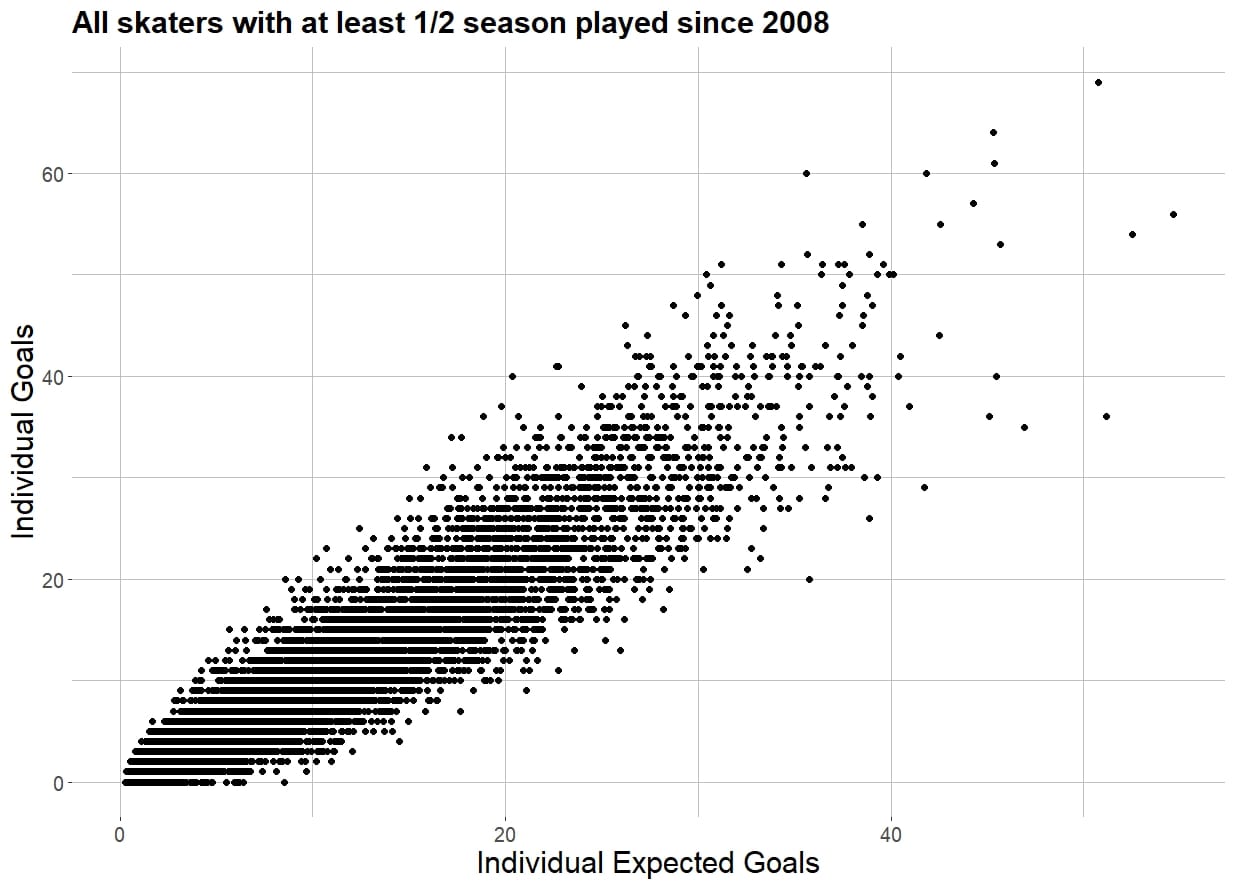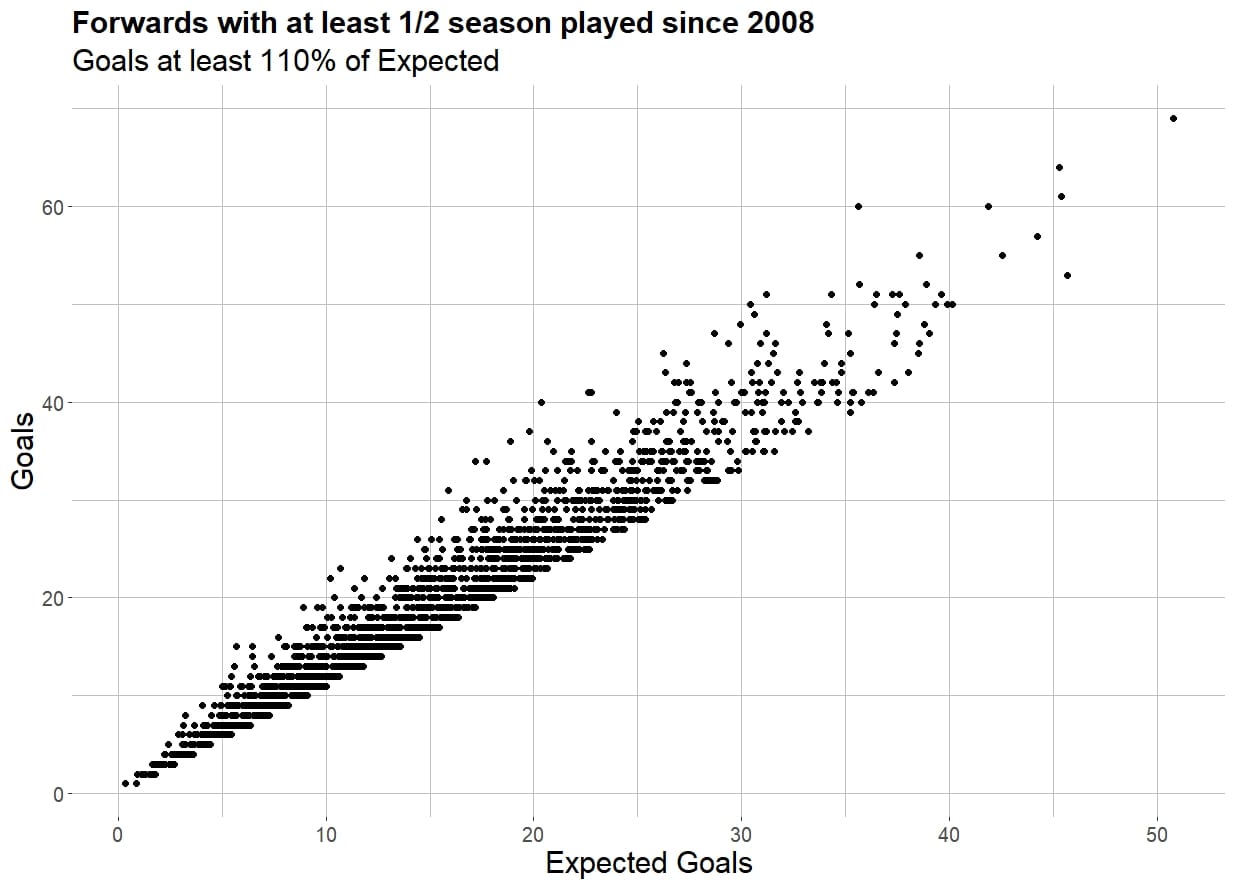Auston Matthews is a very good shooter. I assume you know that, but using Moneypuck's Expected Goals model, Auston Matthews has scored over expected to the tune of 89 goals* over his career in the regular season. This is a very large amount in just eight seasons where several were less than 82 games played. Most players can't do that.
William Nylander has 20 goals scored over expected on his career, and he is notable compared to Matthews for his early seasons where he scored about at expected. For a very long time, he seemed to be a league-average finisher. All that changed in 2021-2022 where he scored 34 goals on 28 expected, and he's had 40 on ~32 Expected in the following two seasons.
*All Expected Goals data is from the Moneypuck season data. Details on their Expected Goals model.
Nylander's early seasons led some fans to be disappointed in him, and to be worried about the Leafs having only the one good finisher in Matthews. Until they started worrying about his wrist, and well, there's always a worry. The question to answer is about how reasonable the worries are. How common is a season or a player career where he shoots over Expected?
First, consider any measurable player result like individual Corsi, Expected Goals, Goals, Expected Goals +/-, really anything that isn't some stat like giveaways or hits or something, and you will get a very similar distribution of player results across the league. The overwhelmingly vast majority of players hover around average. There is, as always, more room to be bad than there is to be perfect, so you should often expect more of a dwindling tail to the bad side, but the NHL is a curated set of players, not a random sample, and elitism is the name of the game. Sometimes the dribble of exceptional players is larger than the bad results.
With that basic understanding, the distribution of skaters since 2008 by Goals over Expected Goals should not be surprising:


In both cases, the mean is just a hair over zero. And zero Goals scored over Expected makes you the embodiment of the average player the Expected Goals model was trained on.
One thing to note is that this is goals over expected as a raw counting stat. There's no accounting for minutes of number of games played, beyond the fact that to qualify, players had to play half a season. You will see a lot more low-minute, non-scoring forwards in any team's season than low-minute defenders. Also the defenders don't shoot much so they can't get as low on the bad side of the chart because even the worst shooting defender doesn't build up very much in Expected Goals to fail to achieve.
Before I go further, and to help out the people who are sure Expected Goals don't mean anything because that one time the chart said it was only a 5% chance of a goal but the net was wide open, and without pre shot movement how do you know anything, and point shots are screened, etc. etc., ad infinitum, this is the relationship between the two:

If scoring near the expected measure is what most NHL players do, then to find the meaningfully talented, requires some arbitrary definition. How many goals over expected is meaningfully good in a season? Goals, and Expected Goals come from opportunity first, and talent and randomness and teammates and all the other things second. Opportunity is getting in games, getting minutes in games, getting power play time in games. Most coaches put the hot shooters on the ice more than the rest of the team, and in the rare cases where a very good shooter plays very little, there's often a reason.
Who is the best out of all these thousands of player seasons? I should make you guess, but when I saw the name, I said, "Oh, of course." In 2011-2012, Steven Stamkos scored 60 goals on 35.62 Expected. The worst is Anders Lee last season on the Islanders who had 20 goals on 35.77 Expected. Stamkos is a talented shooter who plays a lot, but he's not routinely going to get 35 goals over expected. Anders Lee is not hopeless, he's scored 260 goals on 269 expected over his career, making him a very ordinary forward who had a really extraordinarily bad year last year.
Using scoring over expected as a measure of shooting skill takes some of the randomness out of things, but in any given season, a good shooter can look extraordinary or like there's something wrong, and an ordinary shooter can look better or worse than they really are.
Okay, it's pick a number time. When William Nylander started scoring over expected, he was putting in about 125% of his expected number. So if he's a top-six forward and one of the most valuable players on the Leafs, maybe a little less than that can be called very talented. How about 110%?
That gets me 2,097 forward seasons.

And note there are some very low-scoring players here, who got one or two over expected. What I really want to know is, how often is a player scoring at least 20 goals in a season and hitting this good shooter mark. That turns out to be 970 forward seasons. So out of the 6,151 seasons of hockey played by forwards, I'm down to 16% of them. Oh, and that's player seasons. It's only 369 individual people and 156 of them only did it once, so the rest are the repeating skilled shooting stars. I think I've set the bar beyond good to very good here with my arbitrary lines. I guess I'm just spoiled getting to see players like Nylander every game.
You want to know who these people are, but that's too big a chart for a post, so I've put it on a public Google Sheet for you. Steven Stamkos does not have the most seasons on this list, he only has 12, but I bet if you think for a minute, you'll know who has 13.
Now, what about defenders? Held to the same standard there are only 15 defenders who have ever done this. You'll find them at the link below as well. I bet you can guess most of the names, though.
Count the current and former Leafs, there are a lot of them.
So what's the lesson here. The Leafs have really good players and dissatisfaction with them seems to be both ubiquitous and misplaced and not really explained by playoff losses. Most of the players in the NHL don't have outstanding or even very good shooting skill, as most are average. The Leafs aren't unusual in that their depth players aren't little goal machines. You get goals from the bulk of your players by playing a form of hockey that lends itself to average shooters scoring. (This means having the puck more and having an effective offensive system that generates quality shots.)
Some small number of players are extremely talented at scoring goals. The Leafs have more than just the one.








Comment Markdown
Inline Styles
Bold: **Text**
Italics: *Text*
Both: ***Text***
Strikethrough: ~~Text~~
Code: `Text` used as sarcasm font at PPP
Spoiler: !!Text!!